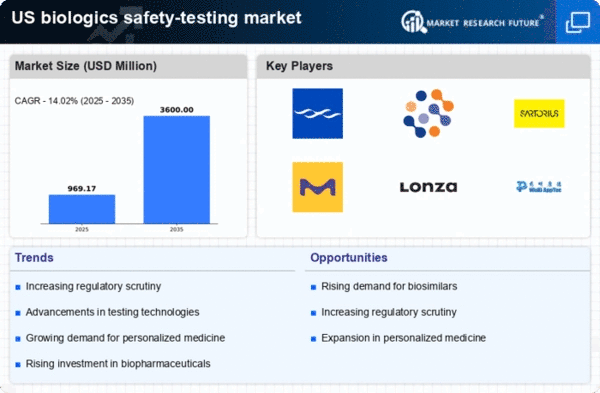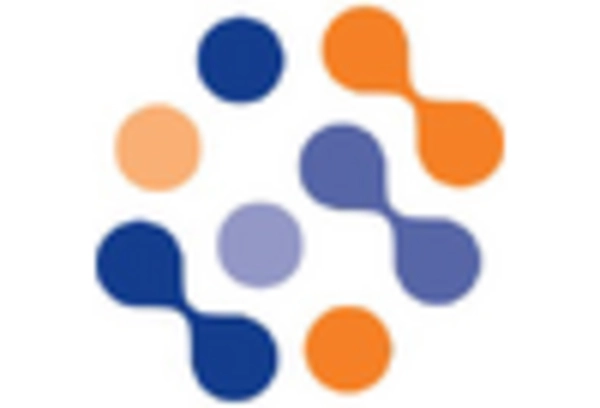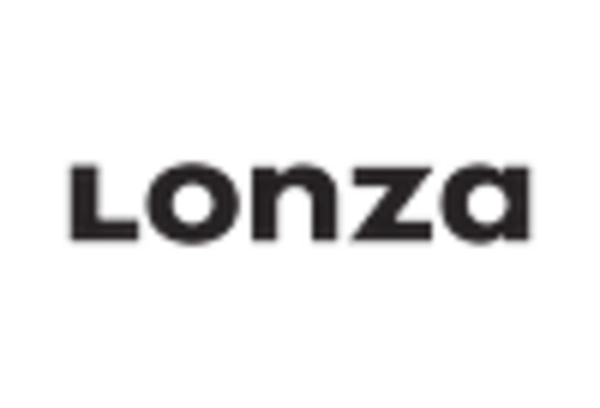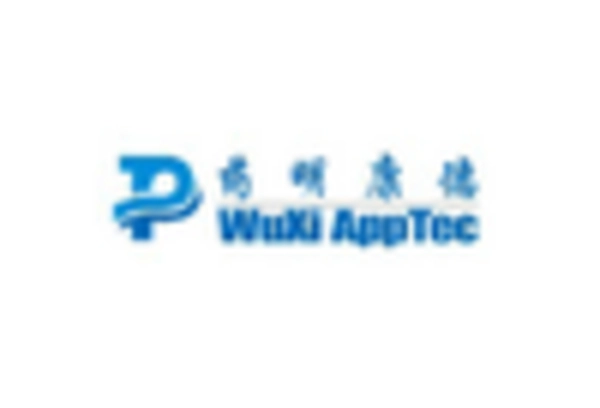Rising Demand for Biologics
The increasing prevalence of chronic diseases and the aging population in the US are driving the demand for biologics. As biologics are often more effective than traditional pharmaceuticals, their usage is expanding. This trend is likely to boost the biologics safety-testing market, as rigorous testing is essential to ensure the safety and efficacy of these products. In 2024, the biologics segment accounted for approximately 30% of the total pharmaceutical market, indicating a substantial market share. Consequently, the need for comprehensive safety testing protocols is becoming more pronounced, as stakeholders seek to mitigate risks associated with biologic therapies.
Stringent Regulatory Frameworks
The biologics safety-testing market is significantly influenced by the stringent regulatory frameworks established by agencies such as the FDA. These regulations mandate comprehensive safety testing for biologics before they can be approved for public use. The emphasis on patient safety and product efficacy has led to the implementation of more rigorous testing protocols. As regulatory bodies continue to evolve their guidelines, the demand for compliance in the biologics safety-testing market is expected to rise. This trend underscores the importance of maintaining high safety standards, which is crucial for gaining regulatory approval and ensuring market access.
Growing Awareness of Patient Safety
There is a growing awareness among healthcare professionals and patients regarding the importance of safety in biologics. This heightened awareness is driving demand for thorough safety testing to ensure that biologic therapies do not pose risks to patients. As patients become more informed about their treatment options, they are increasingly advocating for transparency and safety in the biologics they receive. This trend is likely to influence the biologics safety-testing market, as companies strive to meet the expectations of both regulators and consumers. The focus on patient safety is expected to shape the future of biologics development and testing.
Advancements in Testing Technologies
Technological innovations in the biologics safety-testing market are transforming the landscape of safety assessments. The introduction of high-throughput screening and advanced analytical techniques enhances the accuracy and efficiency of testing processes. For instance, the adoption of next-generation sequencing (NGS) has revolutionized the way biologics are evaluated for safety. These advancements not only reduce testing timelines but also improve the reliability of results. As a result, companies are increasingly investing in state-of-the-art testing technologies, which is expected to propel the growth of the biologics safety-testing market in the coming years.
Increased Investment in Research and Development
The biologics safety-testing market is experiencing a surge in investment as pharmaceutical companies prioritize research and development (R&D) to innovate new biologic therapies. In 2025, R&D spending in the biopharmaceutical sector is projected to reach $200 billion, reflecting a commitment to developing safer and more effective biologics. This influx of funding is likely to enhance the capabilities of safety-testing laboratories, enabling them to conduct more comprehensive assessments. As a result, the biologics safety-testing market is poised for growth, driven by the need for rigorous safety evaluations in the face of increasing R&D activities.
















